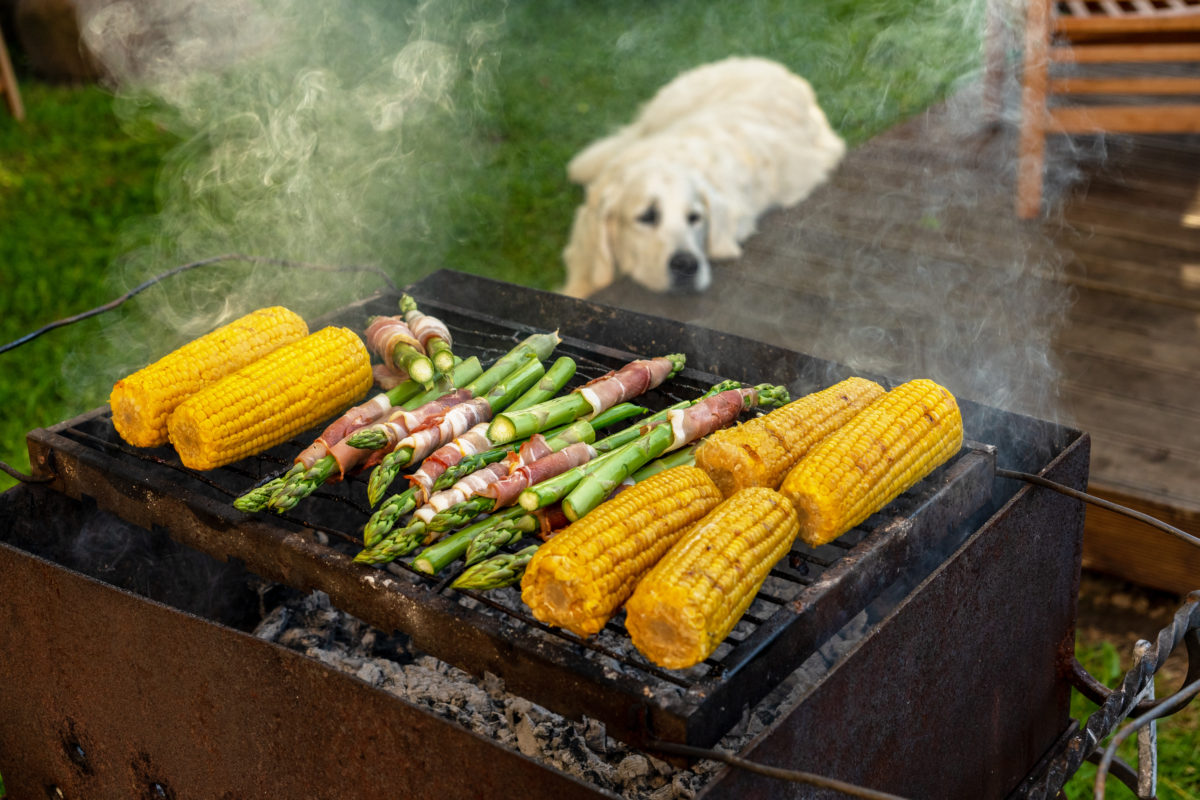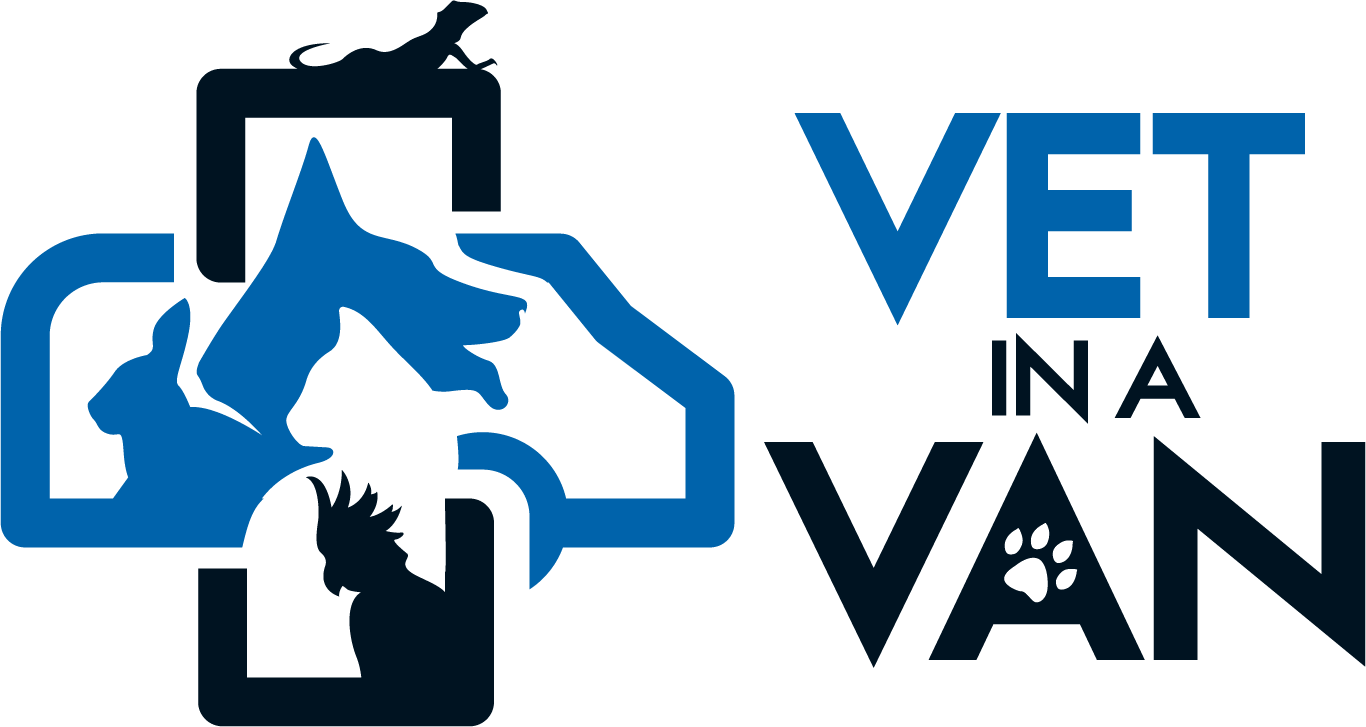Top 7 Human Foods That Aren’t Safe For Dogs

We can all admit to giving in to those puppy dog eyes at some point and slipping some of our dinner to the furry family member under the table. Or maybe the dinner table scraps are destined for the dog bowl. Along with being aware that this may not be providing a balanced diet for your dog and contribute to them gaining a bit of extra weight, there are a few food items that shouldn’t be shared as they can be toxic or cause illness in dogs.
Whether you feed your dog a premade or homemade diet, always make sure that it is balanced for your dog’s nutritional requirements. Random scraps are not a balanced diet.
Here are our top seven human foods that can be dangerous for dogs:
Grapes, sultanas, raisins and currants
Whilst it is still unclear as to why these fruit snacks are toxic to dogs, we do know that they can be responsible for causing severe kidney damage if eaten. Some dogs seem more susceptible than others, so even one grape or sultana could have serious effects.
This also applies to any other foods containing them, like raisin toast, fruit cakes and hot cross buns.
Signs of kidney damage can take days or weeks to become obvious, and by then it may be too late and could progress to kidney failure. So, if your dog has eaten grapes, sultanas, raisins or currants, please seek veterinary advice as soon as possible.
Chocolate and caffeine
Chocolate contains theobromine and caffeine and caffeine is also found in drinks like tea, coffee and cola. This also includes cocoa and cacao and foods that contain them, like chocolate cake. Dogs are quite sensitive to these substances, known as methylxanthines, as they cannot metabolise theobromine properly so even eating a small amount means that it builds up in their body and can lead to signs of toxicosis.
The darker the chocolate, the more methylxanthines it contains, whilst white chocolate contains a negligible amount so is not a concern.
Signs of chocolate or caffeine poisoning include:
- Vomiting / diarrhoea
- Increased thirst and urination
- Restlessness or hyperactivity
- Rapid breathing / panting
- Increased heart rate or arrhythmias
- Muscle tremors
- Seizures
Onion and garlic
Along with other related plants, like leeks and chives, onions and garlic contain compounds called disulfides and thiosulfates which are harmful whether raw, cooked or dried. Cats are most sensitive but dogs are also susceptible, especially if these foods are eaten in large amounts.
Immediate mild effects result in gut upset but the compounds affect the red blood cells and in severe cases can lead to a life-threatening haemolytic anaemia a few days later (effectively damaging the red blood cells so that they can’t function or carry oxygen).
Signs of onion or garlic toxicity include:
- Vomiting / diarrhoea
- Loss of appetite
- Lethargy
- Pale gums and tongue
- Rapid breathing
- Rapid heart rate
Avocado
All parts of the avocado plant contain persin, a fungicidal toxin, that is found in the leaves, bark, seeds, skin and fruit. The leaves contain the highest levels and unripe fruit contains a much higher concentration of persin than ripe fruit.
Although persin is toxic to most animals, particularly birds, serious avocado poisoning in dogs is rare, the most common issue that we see is the avocado seed causing a gut blockage if eaten.
Signs of avocado poisoning include:
- Gut upset / vomiting / diarrhoea
- Abdominal pain
- Mastitis in lactating animals (inflammation of the mammary glands if they are producing milk)
- Heart muscle damage within 24 hours appearing as
- Lethargy
- Difficulty breathing
- Cough
- Tongue and gums turning blue
- Death
Xylitol
This is an artificial sweetener commonly found in foods like chewing gum, sugar-free lollies, toothpaste, human medications and some foods. Xylitol is extremely toxic to dogs. Even small amounts cause a sudden insulin release into the bloodstream resulting in a massive drop of blood sugar levels within 10-60 minutes of ingestion.
Signs of xylitol poisoning include:
- Vomiting
- Lethargy
- Loss of coordination
- Seizures
- Liver failure
Fatty foods
Think twice before handing your dog a sausage at your next barbeque. When we eat fat it stimulates the pancreas to release digestive enzymes, an entirely normal process, but in dogs a random fatty meal might cause an overstimulation of the pancreas leading to inflammation and a condition called pancreatitis. This can be incredibly painful and lead to dehydration, infection and ongoing issues.
Beef, lamb, fatty offcuts and barbequed meat are typical culprits, but pancreatitis can also be secondary to obesity, food poisoning, long-term steroid use or trauma. A dog who has had a previous case of pancreatitis may be more susceptible to it happening again.
Signs of pancreatitis include:
- Vomiting / diarrhoea
- Abdominal pain
- Reduced appetite
- Reluctance to move
- Collapse
Whilst we’re on the subject of barbeques… keep those corn cobs and kebab sticks away from your dog too. That includes keeping the scraps and rubbish bag out of reach! These items are renowned for being eaten by dogs and getting stuck in their gut, causing an emergency.
Cooked bones
The suitability of feeding raw bones to dogs needs to be assessed on an individual basis as it does carry some risk and different bones may be suited to different dogs, both due to their size and eating habits as well as the type of bone. Cooked bones should never be fed as they are more prone to shattering and splintering with the potential to get stuck in the mouth or throat, or cut or puncture the gut as they pass through.
Signs that feeding bones are causing problems may include:
- Broken teeth
- Vomiting / diarrhoea
- Constipation
- Blood in the poo
- Abdominal pain
I think my dog has been poisoned, what should I do?
As with any potential toxin, the sooner that detoxification and treatment is started, the easier it is to treat and the better the outcome for your dog.
If you suspect or notice that your dog has eaten any of these foods or has been poisoned by something else, please call the FREE Australian Animal Poisons Helpline on 1300 869 738 (1300 TOX PET) or your veterinarian for advice as soon as possible.
It is also helpful to ensure you have a Pet First Aid kit on hand in-case of an emergency, check out the Vet in a Van – Navigator Pet First Aid Kit.




